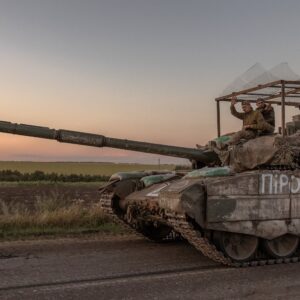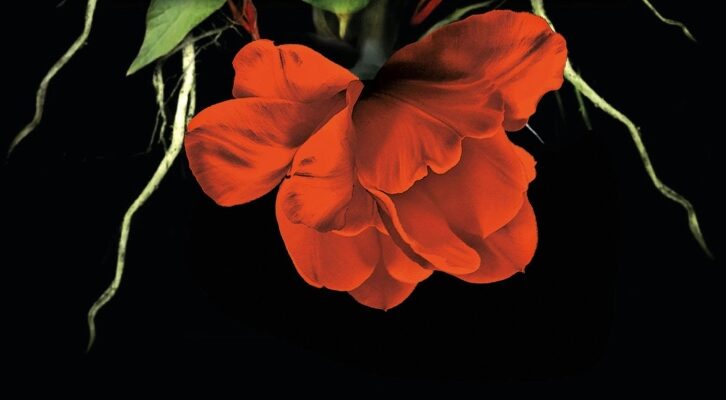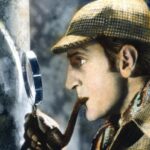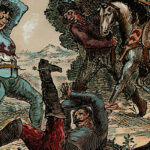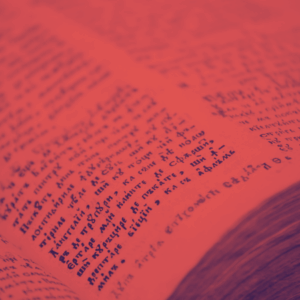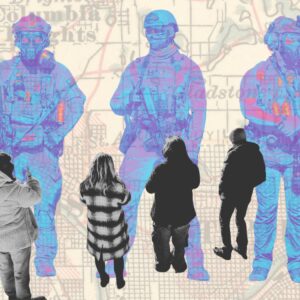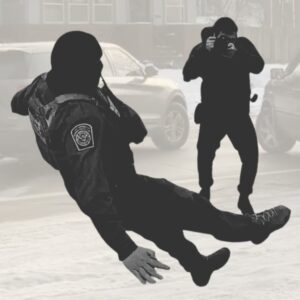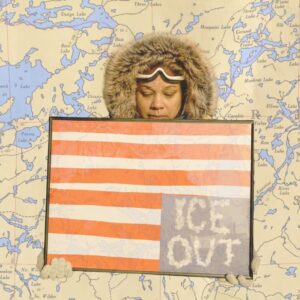
On Book Hoarding and the Perilous Paradox of Clutter
Vanessa Ogle Remembers Growing Up Among... Stuff
To reach his books, my father had to exit our home, down the small one-step cement porch, under the mulberry tree that left purple splotches on our dirt driveway, and walk to the side of our house that was three different colors from all the peeling paint, everything chipped anemic blues and grays.
There, behind the cover of trees and unruly vegetation, he’d lift the tiny, unreliable plastic tabs on the small rectangular window and heave himself into the room that was filled to the ceiling with books. At just under six-foot-five, his frame was long but he was thin enough to maneuver his way in. Sometimes he would reach down from the window to pull me into the wreckage that housed his most precious possessions.
The room, which we dubbed The Book Room, was inaccessible from the inside, the door unworkable since too many books blocked its movement in any direction. In that room, I looked at books—was nearly consumed by books, most musty with the particular smell of antiques and moisture, filth tainting any treasure—but I didn’t have the space to read them. I could barely breathe.
*
What I remember most about childhood are the things I saw. My face, too short for the medicine cabinet mirror, wasn’t burned into my memory as vividly as the books or the laundry baskets that were stuffed to the brim with miscellaneous items and scattered around the living room or the piano that was unplayable because it was covered with clothing or the worthless knick-knacks strewn around.
Books weren’t the only thing that made our house full. Both of my parents had a hard time letting things go. Poverty—that fear of never knowing when they’d be able to purchase another one of whatever thing it was—was only one reason why.
We had some paths throughout the house, these curved walkways around items piled high. The entryway to the home was kept clear so anyone looking in wouldn’t know our secret.
*
My father published a book about ventriloquism in his twenties. By IQ standards, he is probably a genius but he had a variety of issues that prevented him from publishing and eventually writing new material at all. Even his voracious reading dwindled. Like the turn of fate with Beethoven going deaf, my father struggled with his vision for as long as I can remember, having various surgeries throughout my childhood.
Both of my parents had a hard time letting things go. Poverty—that fear of never knowing when they’d be able to purchase another one of whatever thing it was—was only one reason why.
He often talked about the Twilight Zone episode featuring the man who survives what is essentially the apocalypse. The man collects all the books he wants, but right at the end, he breaks his glasses. Sometimes, my father would take off his glasses and hold the book up to his face, squinting mere inches away.
But even when when reading became almost impossible, his passion for books and collections never ceased. It often felt like being around books was enough.
*
The problem with stuff was how paradoxical it was for our family. We had so much stuff but yet we never really had anything. We had a bare fridge and I longed for toys of my own, not just broken yard sale finds. I liked Pringles because the plastic lid doubled as a miniature frisbee, which felt like a free toy. Because everything was saved, we couldn’t find things that we actually wanted or needed. The daily task of finding socks for six people was nearly impossible.
My childhood home was ultimately condemned and has since been demolished. A little plot of green land, cleared of most of the trees, sits clean now. During the pandemic, the land was for sale for less than five thousand dollars. I wanted to buy it, a way of reclaiming the past. I could plant a community garden, I told my family. I wanted to take the mess that became nothingness and turn it into something beautiful. The tangibility cyclical, things blooming, dying. I wanted to attract butterflies. I didn’t want to make the land into a metaphor—I wanted to turn something real into a symbol.
Buying this land felt like the perfect way to heal—but no one else thought it was a good idea. I think someone bought it eventually, though for now, it still sits empty.
*
When I was in middle school, I moved into my brother’s home, which was always nice and tidy. I had the necessities but didn’t have a lot of possessions. That remained the same for most of my adulthood, since I moved frequently. Friends or acquaintances would comment on the things missing in my apartment. (“Don’t you want more rugs?” “Where’s the rest of your furniture?” “Why don’t you hang something on your walls?” “You should decorate like HGTV.” “Surely this can’t be all you own, right?”) But I liked being able to see so much of the floor.
Now, more immersed in trappings of the middle class, I have things—too many things and too many books. I have six bookcases and piles of books stacked against the wall. On Zoom, I’m asked if my bookcase background is real.
There are so many things that I longed for, and the truth is, money can probably never heal that. I can never buy my past self the dolls I wanted at age eight or the toy I wanted for kindergarten show-and-tell.
I have worked in fast food and I have worked as a senior government official. I have had months with multiple viral pieces published and years when I’ve had nothing published. Throughout these different extremes in my life, I’ve had times where I wanted to buy something so badly while knowing there was no possible way to ever make that a reality and on the other hand, I’ve been able to make impulse purchases without regret.
Sometimes, the idea of an object is more exciting than the object itself. The truth is, I was happiest when I had less. Clutter, even valuable clutter, creates stress. Books, even ones I desperately want to read, still have to have a limit. Because truly, the more I buy, the less I read.
My favorite times with books were when I read them in the library, the books unowned and simply borrowed, my mind reading the pages of the stories that stay with me even now, my mind joining the minds of others, my experience based not on the physical copy of the book at all but the words that burn into me and the emotions that followed.
Vanessa Ogle
Vanessa Ogle is a poet, writer, and educator. Her work has appeared in the New York Times, The Nation, Business Insider, and a variety of literary magazines. Her poetry chapbook Mother of 0 will be released in March 2024.









